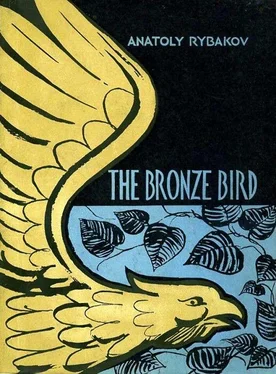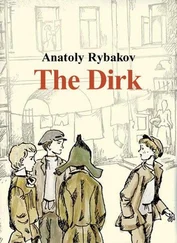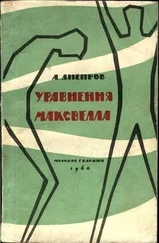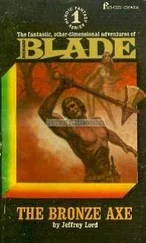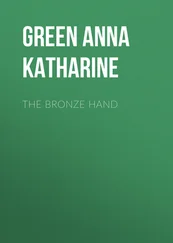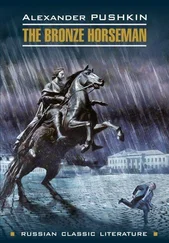Anatoly Rybakov - THE BRONZE BIRD
Здесь есть возможность читать онлайн «Anatoly Rybakov - THE BRONZE BIRD» весь текст электронной книги совершенно бесплатно (целиком полную версию без сокращений). В некоторых случаях можно слушать аудио, скачать через торрент в формате fb2 и присутствует краткое содержание. Город: Moscow, Год выпуска: 1956, Издательство: Foreign Languages Publishing House, Жанр: Детские приключения, Детектив, Исторические приключения, на английском языке. Описание произведения, (предисловие) а так же отзывы посетителей доступны на портале библиотеки ЛибКат.
- Название:THE BRONZE BIRD
- Автор:
- Издательство:Foreign Languages Publishing House
- Жанр:
- Год:1956
- Город:Moscow
- ISBN:нет данных
- Рейтинг книги:5 / 5. Голосов: 1
-
Избранное:Добавить в избранное
- Отзывы:
-
Ваша оценка:
- 100
- 1
- 2
- 3
- 4
- 5
THE BRONZE BIRD: краткое содержание, описание и аннотация
Предлагаем к чтению аннотацию, описание, краткое содержание или предисловие (зависит от того, что написал сам автор книги «THE BRONZE BIRD»). Если вы не нашли необходимую информацию о книге — напишите в комментариях, мы постараемся отыскать её.
THE BRONZE BIRD — читать онлайн бесплатно полную книгу (весь текст) целиком
Ниже представлен текст книги, разбитый по страницам. Система сохранения места последней прочитанной страницы, позволяет с удобством читать онлайн бесплатно книгу «THE BRONZE BIRD», без необходимости каждый раз заново искать на чём Вы остановились. Поставьте закладку, и сможете в любой момент перейти на страницу, на которой закончили чтение.
Интервал:
Закладка:
"But..." Slava tried to protest.
"No buts," Misha said. "Find out everything. And wait for me here. I'll be back soon."
Chapter 45
AT SEROV'S AGAIN
Once again Misha found himself in front of the grey building-housing the Gubernia Department of Public Education. There was a troubled look in his eyes as he gazed at it. How would Serov receive him? He wished Boris Sergeyevich, the headmaster of the children's home, were here. He would support them. He would never allow the troop to be sent away. Well, never mind, if nothing came of this visit, he, Misha, would go... Where would he go? To the Gubernia Komsomol Committee, of course. If they refused to help him, he would go to the Gubernia Party Committee. That was where he would go!
Serov received Misha as an old friend. He waved his hands and shook his head sadly, saying:
"I know, I know. I know all about your bad break. I managed to hush things up. It could have been worse."
Misha was dumbfounded.
"What things?"
"A terrific row was raised about you here," Serov said, shaking his head and gesticulating. "They wanted to report to Moscow. But I told them, 'It happens. The lads are young and inexperienced and so could not get on with the local population. Are you going to hang them for that? They will go somewhere else and that will be the end of it.' "
"But why should we go somewhere else?"
A note of gentle and friendly persuasion crept into Serov's voice:
"Is it so hard to take your tents to another place? Think for yourself... What difference does it make where your camp is? You'll only rid yourself of trouble."
"It isn't hard to move the tents," Misha said, "but why must we go away at all? It's not fair."
Serov threw up his hands in disappointment.
"This won't do at all... Have you read the papers?"
"There's no truth in those articles," Misha replied.
Serov sadly screwed up his eyes and said in a grieved tone of voice:
"How can you say such a thing? You are a Komsomol and this is your attitude to our Soviet press!"
"Not to the press but to the person who wrote the articles," Misha replied, knitting his brows.
Unexpectedly, a note of sternness crept into Serov's voice:
"The editorial office," he said, "does not print anything without checking the facts. And you must remember, the newspaper is headed by Communists, by your senior comrades. I'll have you respect them, if you please."
The argument was forcible, especially so far as Misha was concerned. But for all that he could not back down.
"It's all wrong and unfair," he persisted. "We'll see what the Gubernia Komsomol Committee has to say about it."
For an instant Serov shut his eyes. In that moment, the lowered eyelids, swollen and unnaturally big for such small eyes, made his face look like a thick, immobile mask. When he opened his eyes, they no longer darted from object to object, but were fixed coldly on Misha.
"So you are intending to complain?"
"Not to complain, but to report the matter."
"Hm... And do you know how it will end for you?"
"How?"
"You'll be expelled from the Y.C.L."
"What for?" Misha asked in surprise.
"For the trouble you have brought people," Serov said roughly. "At first I wanted to put the matter before the Gubernia Komsomol Committee, but I was sorry for you. This is my advice to you: take your tents and go away. Without noise. The Y.C.L. will not pat you on the back for what you've done. So see that there is no row. Don't start any trouble."
"I am a member of the Y.C.L.," Misha replied proudly, "and I will never shirk my responsibility. I am always ready to answer for what I do."
"The culprits who cut down the apple-trees must be punished," Serov threatened, "and they will be punished. And you'll be made to pay not only for the apple-trees, but also for the paints and materials spoilt at the club. I can imagine how pleasant that is going to be for you when your school and Komsomol Committee will get to hear about it. Therefore, I repeat, your best recourse is to leave without noise or scandal. To slip away in time. Understand?"
Serov added that Igor and Seva's escapade was another point against him. He was a bad leader if his Young Pioneers were running away! Running away, getting mixed up in murders, and stealing boats. It was still not very clear if they had simply stolen the boat or if there was something graver behind it. Yes, yes, he had the impression that the matter was not as simple as some people were trying to make it out to be. He had learned a thing or two while Igor and Seva stayed at his house. That was how all this was turning out, young man. It was a pretty piece of business all round. You must think of your future. Your life is only beginning and you cannot afford to have any slurs cast on your character. The best thing for you is to go away while the going is good.
Misha listened with bowed head. Serov's interpretation of everything made it look as though the boys had committed a heinous crime. How had it happened? No doubt, people would believe Serov. Then there were those articles. What a blemish that would make on the troop!
"Have we come to an understanding?" Serov asked, looking closely at Misha.
In his voice Misha caught a note of anxiety.
"I'll think about it."
"Very well," Serov said with satisfaction, putting both his hands, palms down, on his desk. "Our gubernia is big, there's room everywhere. It'll do you good to travel about, to get to know more about the region where you were born. You'll return to your camp today, and early tomorrow morning you'll pack up and..."
Misha walked out of Serov's office. Contradictory feelings took possession of him. What was he to do?
Serov was a scoundrel. That much was clear. He had no friendly feelings for Misha and he wanted the troop to leave Karagayevo. People would listen to him rather than to Misha. Even Boris Sergeyevich, the headmaster of the children's home, was powerless against Serov and could not take over the estate. Serov could very easily prove to the Gubernia Committee of the Komsomol that Misha and his friends were in the wrong in everything. He was the type who would cunningly take advantage of their mistakes, both real and imaginary. And it could all end in the troop finding themselves in really hot water.
What could he do to avoid trouble? Return to the camp, pack up and move away from the estate? Throw up everything? The club, the village children, the illiteracy-abolition class, where people could already read by syllables? To leave Nikolai Ribalin, Long-shanks and his mother to their fate? To do nothing to help Boris Sergeyevich organise his labour commune? In general, to run away from the fight, to admit he was wrong? To run like a coward from the tribunal of his comrades?
No! That was not the way of Komsomols! He could not surrender! Whatever happened, they were not guilty of any crime. They had blundered, but they were honest Komsomols and were not afraid to answer for what they did... Was it possible that the people at the Gubernia Komsomol Committee would not be able to sort things out?
Chapter 46
VICTORY!
Misha found the secretary of the Gubernia Committee coming down the stairs. He was a fair-headed lad in a leather jerkin, bell-bottomed trousers and a grey cap.
"What do you want?" he demanded when Misha stopped him.
Walking at his side, Misha started telling him why he had come. But people kept claiming the secretary's attention, once or twice he stopped and called to someone himself, and in the end said that he had understood nothing.
"I haven't the faintest notion of what you're talking about. Here, let's sit down and you tell me everything from the beginning."
They sat down on a window-sill. Misha began his story all over again. This time the secretary understood and said:
Читать дальшеИнтервал:
Закладка:
Похожие книги на «THE BRONZE BIRD»
Представляем Вашему вниманию похожие книги на «THE BRONZE BIRD» списком для выбора. Мы отобрали схожую по названию и смыслу литературу в надежде предоставить читателям больше вариантов отыскать новые, интересные, ещё непрочитанные произведения.
Обсуждение, отзывы о книге «THE BRONZE BIRD» и просто собственные мнения читателей. Оставьте ваши комментарии, напишите, что Вы думаете о произведении, его смысле или главных героях. Укажите что конкретно понравилось, а что нет, и почему Вы так считаете.
